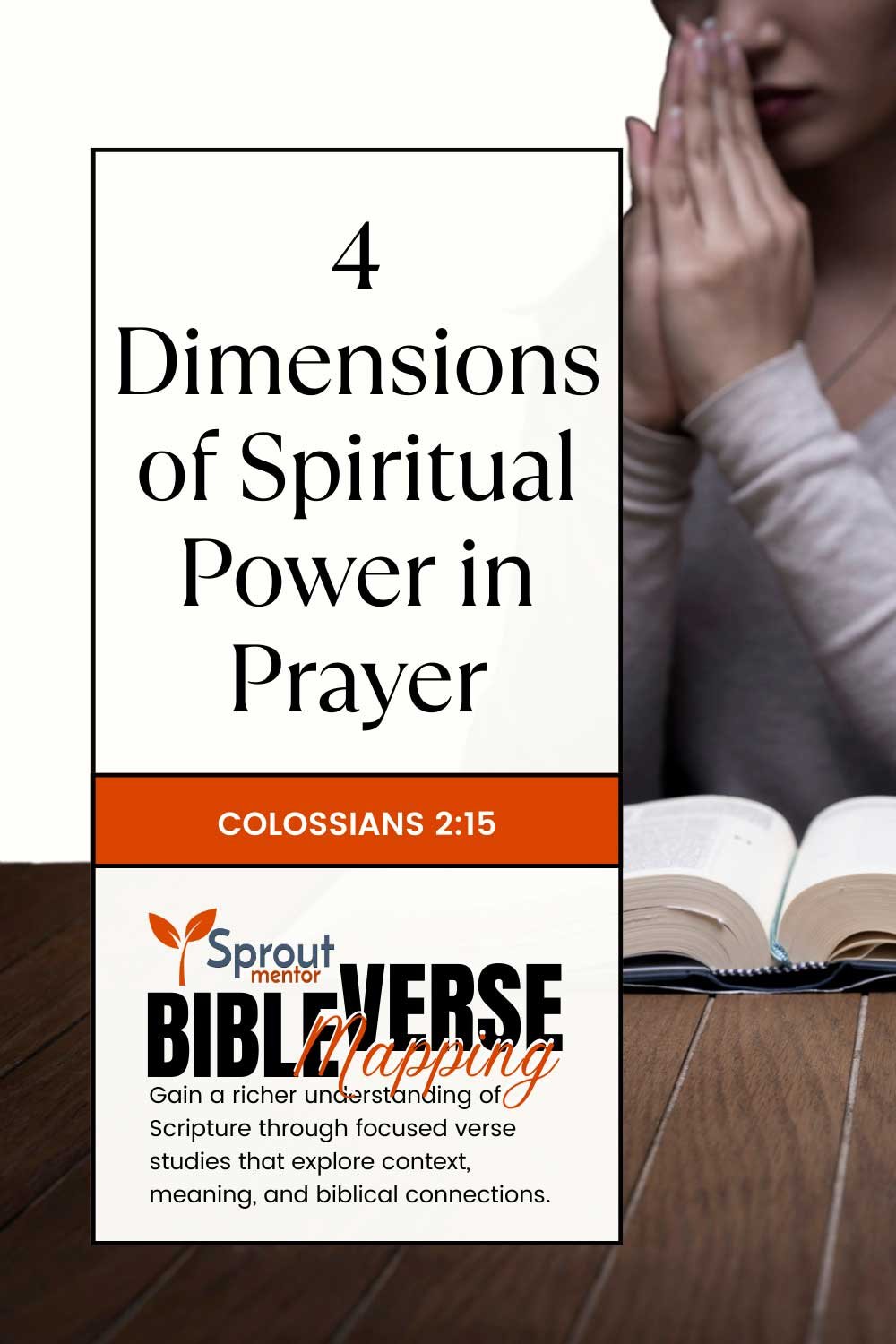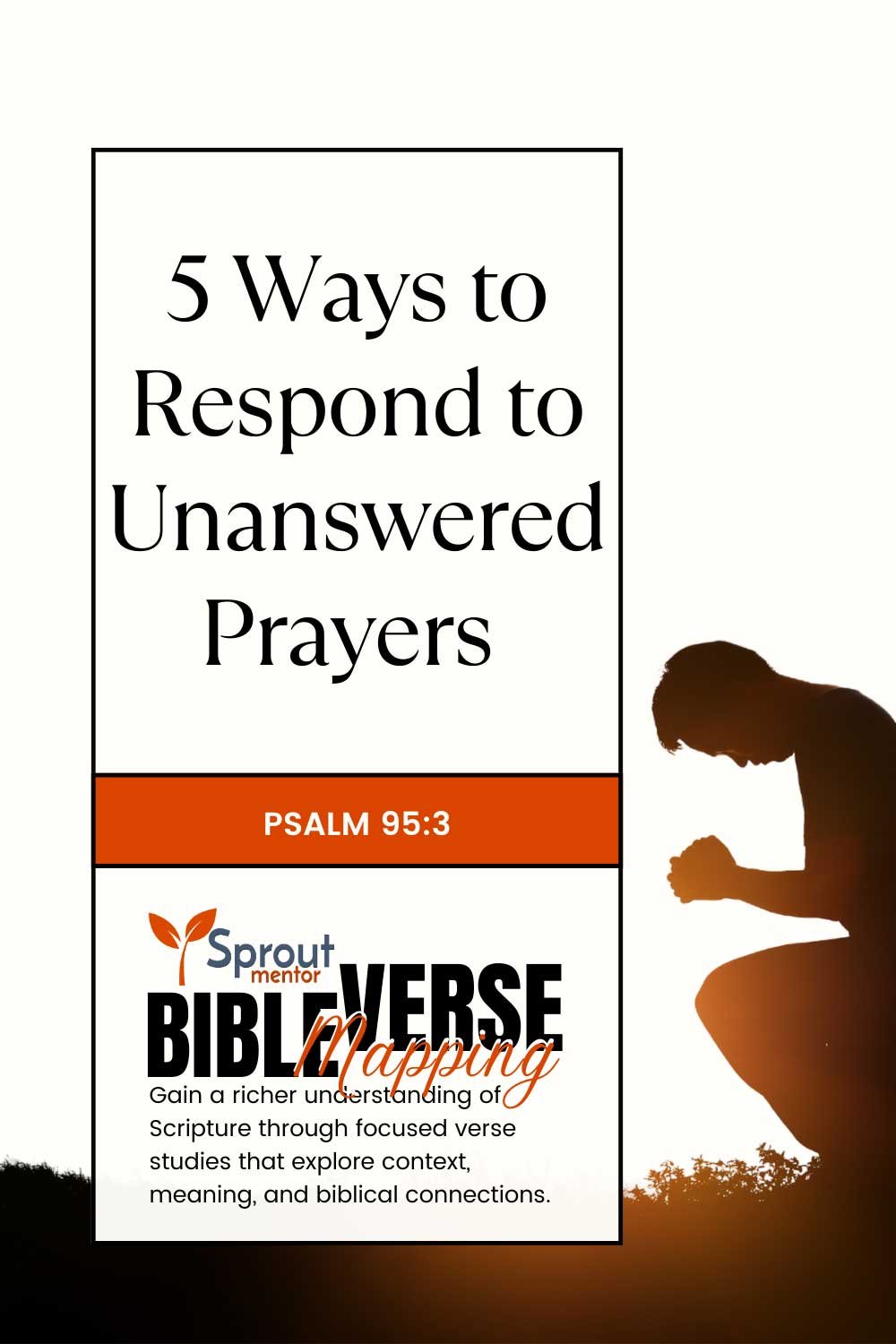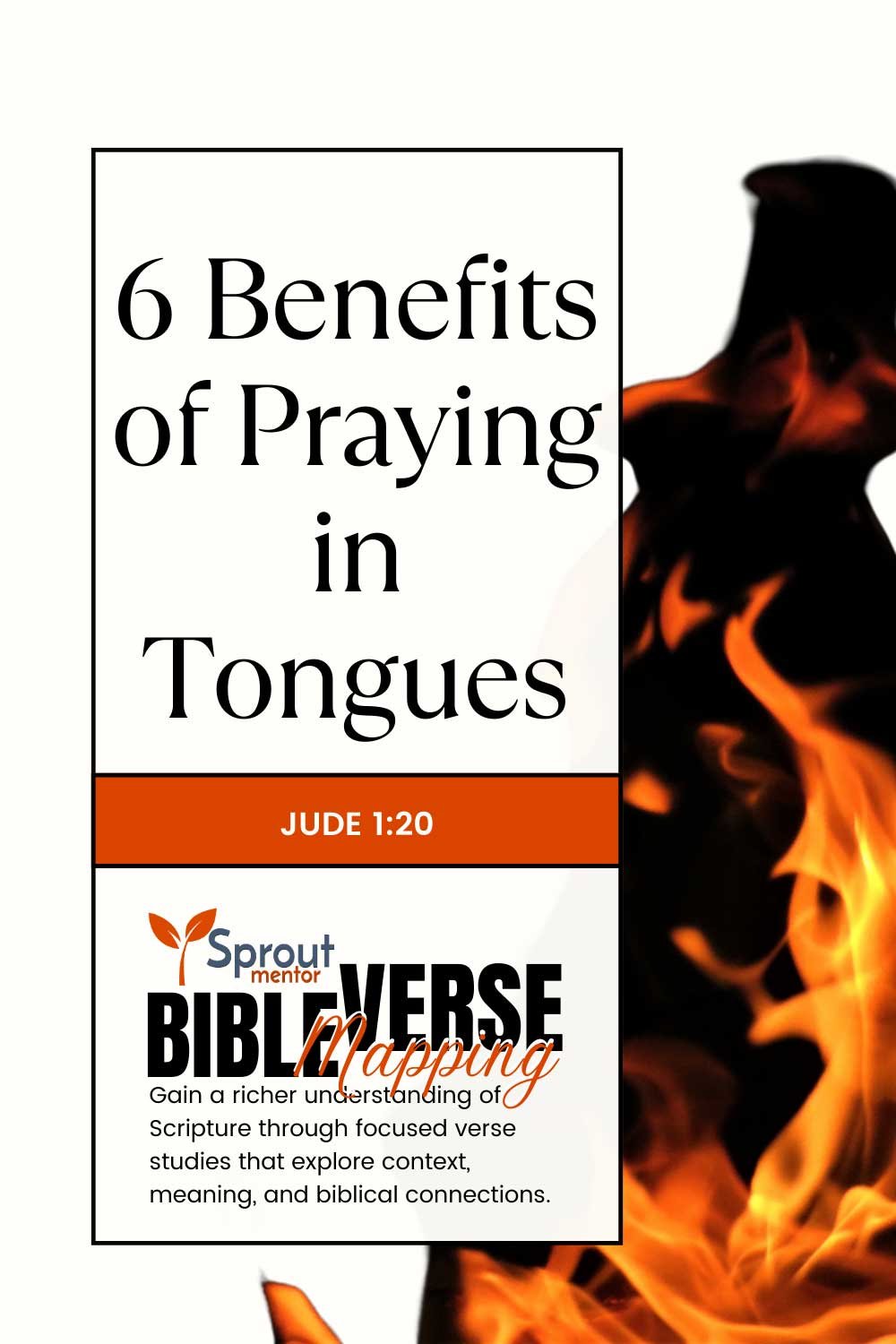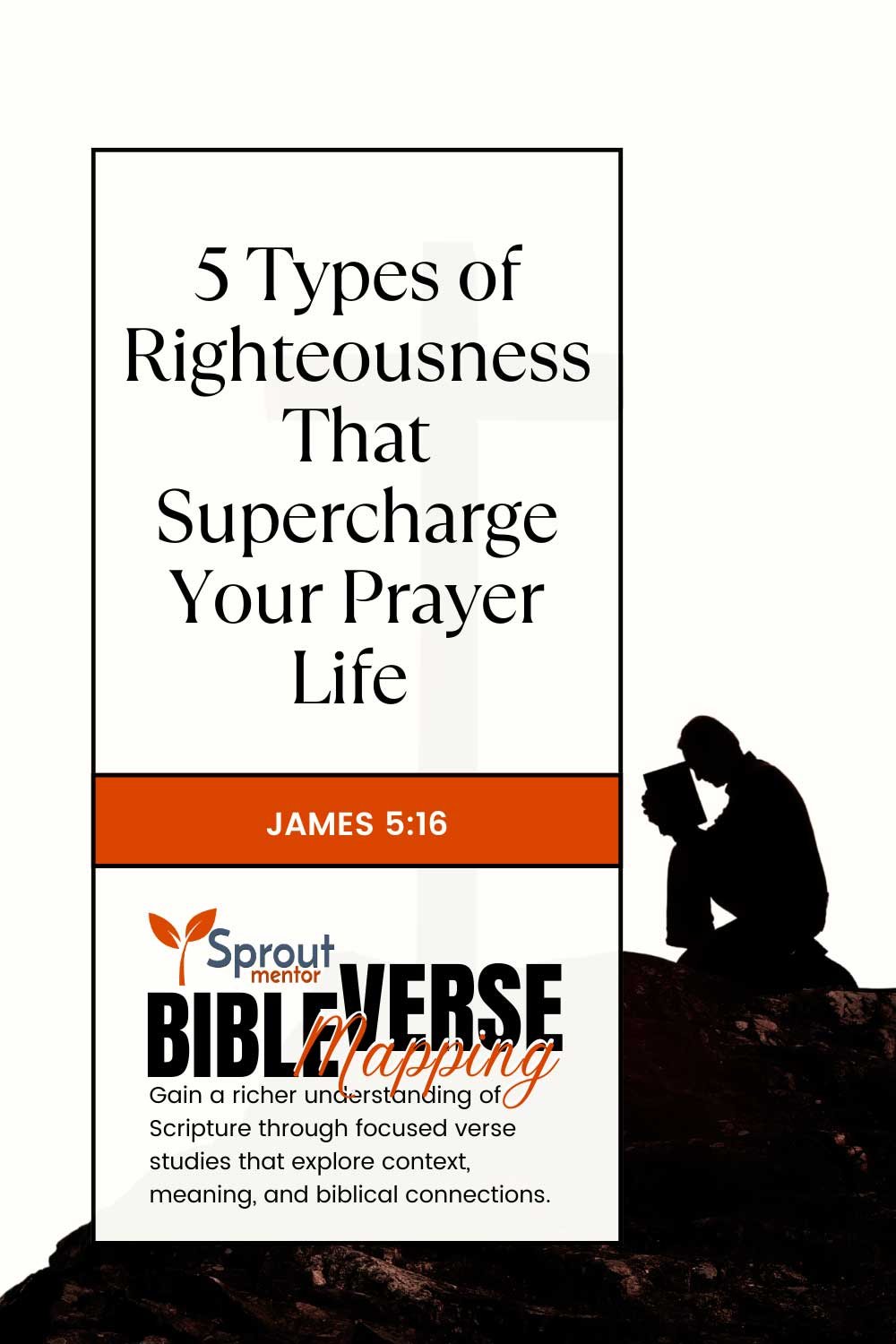4 Dimensions of Power in Prayer (Colossians 2:15)

Share This Blog Post On:
Short on time, but big on faith? We break down complex topics into easy-to-understand chunks, making the Bible accessible to everyone. Join us for answers to your Bible questions and encouragement for your daily walk with God. Click here to grow your faith, one byte at a time!
“And having spoiled principalities and powers, he made a shew of them openly, triumphing over them in it.” (Colossians 2:15, KJV)
The Greek word used in Colossians 2:15 for “spoiled” is apekduomai, and its historical context reveals a fascinating picture of Roman military surrender protocols. In ancient Roman warfare, when a commander faced defeat, they would perform a specific ritual of surrender: stripping themselves of armor and weapons, and laying prostrate with their sword positioned above their head. This act symbolized complete submission to the victor’s authority.
The victorious commander would then claim the defeated leader’s equipment as a trophy of war. Sometimes, if mercy was granted, the defeated commander would be branded with the victor’s insignia – a permanent mark of their submission and the victor’s triumph. This historical context adds profound depth to our understanding of Christ’s victory over Satan and the powers of darkness.
While we often associate God’s supreme power with the act of creation – speaking the universe into existence – the resurrection unveiled a new dimension of divine power that transcended even creation itself. This resurrection power not only conquered death but also stripped Satan and his forces of their authority, publicly humiliating them in their defeat (Colossians 2:15).
Scripture reveals a fascinating insight in 1 Corinthians 2:8: “None of the rulers of this age understood it, for if they had, they would not have crucified the Lord of glory.” Satan and the spiritual forces of wickedness grievously miscalculated their opposition to Jesus. They believed that by orchestrating His crucifixion, they could thwart God’s plan of salvation. Instead, they unwittingly participated in the very event that would seal their defeat.
What’s truly remarkable is that this same resurrection power isn’t locked away in history – it’s available to believers today. The Apostle Paul prayed that believers would understand “the exceeding greatness of His power toward us who believe, according to the working of His mighty power” (Ephesians 1:19). In this single verse, Paul employs four distinct Greek words for power, each revealing a different dimension of God’s power operating in our prayer lives.
Dimension One: Dunamis
Dunamis refers to inherent power or potential – the raw energy from which we get our English word “dynamite.” This is the foundational power that resides within every believer through the indwelling Holy Spirit. Jesus referenced this power when He said, “But you shall receive power (dunamis) when the Holy Spirit has come upon you” (Acts 1:8).
This dimension of power represents our spiritual potential in Christ. It’s the capacity for miraculous intervention, the ability to overcome obstacles, and the strength to stand firm in faith. When we pray, we tap into this reservoir of divine potential that God has placed within us.
Consider how this played out in the early church. The apostles operated in tremendous dunamis power, performing signs and wonders (Acts 4:33). This wasn’t because they were special in themselves, but because they understood and accessed this dimension of God’s power through prayer and faith.
Dimension Two: Energeia
Energeia, represents working power in operation – the source of our word “energy.” This is dunamis power activated and put to use. It’s not just potential anymore; it’s power in motion.
Paul uses this word when he says, “For it is God who works (energeia) in you both to will and to do for His good pleasure” (Philippians 2:13). This is the power that transforms our prayers from mere words into spiritual forces that effect change in the natural realm.
When we pray with energeia, we’re not just going through religious motions – we’re participating in the active working of God’s power. This is what James meant when he said, “The effective, fervent prayer of a righteous man avails much” (James 5:16). The word “effective” here implies energy expended, power at work.
Dimension Three: Ischus
Ischus represents might and strength – the power of ability and capability. This dimension speaks to God’s unlimited capacity to answer prayer and overcome any obstacle. When we pray with ischus, we acknowledge and access God’s overwhelming strength.
Peter encourages believers to serve “with the strength (ischus) which God supplies” (1 Peter 4:11). This dimension of power reminds us that our prayers aren’t limited by our human capabilities but are backed by God’s mighty strength.
This power was demonstrated when God raised Christ from the dead, breaking the bonds of death and hell. It’s the same power that Paul references when he says we can “be strong in the Lord and in the power of His might (ischus)” (Ephesians 6:10).
Dimension Four: Kratos
Kratos represents dominion power – the power of authority and rulership. This is the power that enforces victory and maintains dominion. When we pray with Kratos, we’re exercising the authority Christ won for us through His resurrection.
This is why Paul could confidently declare, “For we are more than conquerors through Him who loved us” (Romans 8:37). The victory has already been won; Kratos power helps us walk in and maintain that victory through prayer.
In conclusion, the resurrection power that stripped Satan of his authority and publicly humiliated the forces of darkness is the same power available to us in prayer today. With this understanding, we can pray with greater confidence and effectiveness.
Our destiny cannot be limited by Satan’s schemes or spiritual opposition because, through Christ’s victory, we have access to power that transcends creation itself. That means the goal isn’t to focus on the enemy but to become so rooted in Christ that His power naturally operates through us.
As we do this, our prayer lives will become less of a religious exercise and more of a channel through which God’s resurrection power flows into every situation we face, ultimately experiencing what Paul described: “Now to Him who is able to do exceedingly abundantly above all that we ask or think, according to the power that works in us” (Ephesians 3:20).
Continue Reading More On The Prayer Guides Below:
|







